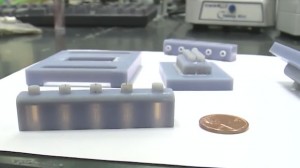NEW YORK (Reuters Health) – Senior investigator Dr. Henry T. Akinbi of Cincinnati Children’s Hospital Medical Center and University of Cincinnati College of Medicine, provided this perspective in an email to Reuters Health: “The current standard in most states to screen term newborn at about 24 hours of life is appropriate. However, in preterm infants and sick full term infants, prematurity, illness and medications confound the assays used in newborn screening, resulting in unacceptably high prevalence of false positive results.”
He continued, “As such, infants that weigh less than two pounds at birth constitute about 1% of all deliveries, yet they account for over two thirds of false positive results reported in newborn screens. Our study was designed to quantify this problem and to assess if the timing of specimen collection could be modified to minimize false-positive screens in preterm infants.”
To do so, Dr. Akinbi and colleagues analyzed data from the Ohio State Newborn Screening Program Database, covering 448,766 neonates. False positive rates for 18 tests were determined for five birth weight categories — 4000 g. The number of false-positive results per 1000 newborn screens in the five categories was 151.1, 117.2, 27.1, 10, and 7.1.
False-positive rates showed a similar pattern when grouped according to gestational age.
“To assess the impact of the postnatal age at which blood samples were obtained on the frequency of false-positive results for the two tests that accounted for the majority of false-positive results (thyrotropin/back-up thyroxine and 17-hydroxyprogesterone), data were analyzed according to the hour of age of the infant at the time of specimen collection,” the researchers explain.
This showed that collecting specimens 48 hours after birth from infants born at less than 32 weeks gestation reduced the rate of false-positives by 44%.
“No true-positive screen would have been missed if blood specimen collection from preterm infants had been delayed till 48 hour of age,” Dr. Akinbi stated. “In contrast, half of the false positives would have been avoided.”
Is there no downside to delaying the screening of preterm newborns? “It is highly improbable that waiting till these infants are 48 hours old to obtain blood specimens for newborn screen will result in any harm,” Dr. Akinbi responded.
“False-positive results engender an enormous amount of anxiety in parents that are dealing with a critically ill infant in the intensive care unit. The strategy proposed in our report will ameliorate this problem,” he concluded.
Reference:
The Effects of Gestational Age and Birth Weight on False-Positive Newborn-Screening Rates
Pediatrics 2010; 126:910-916.




